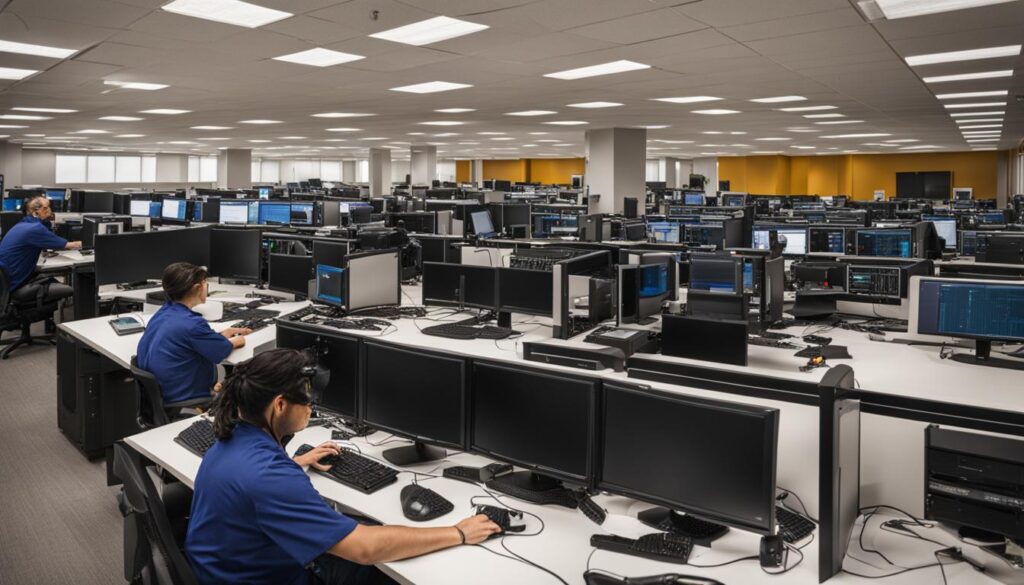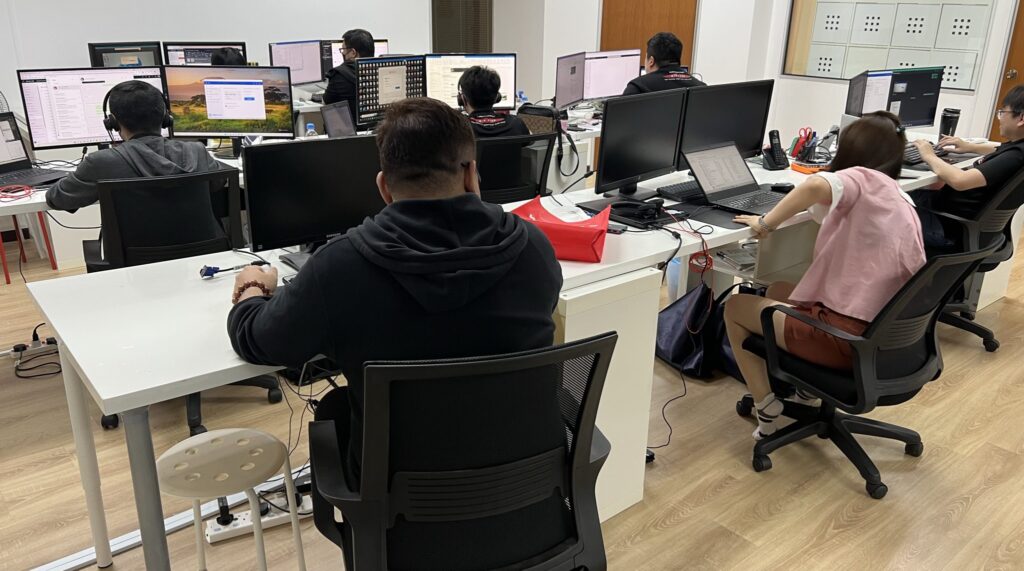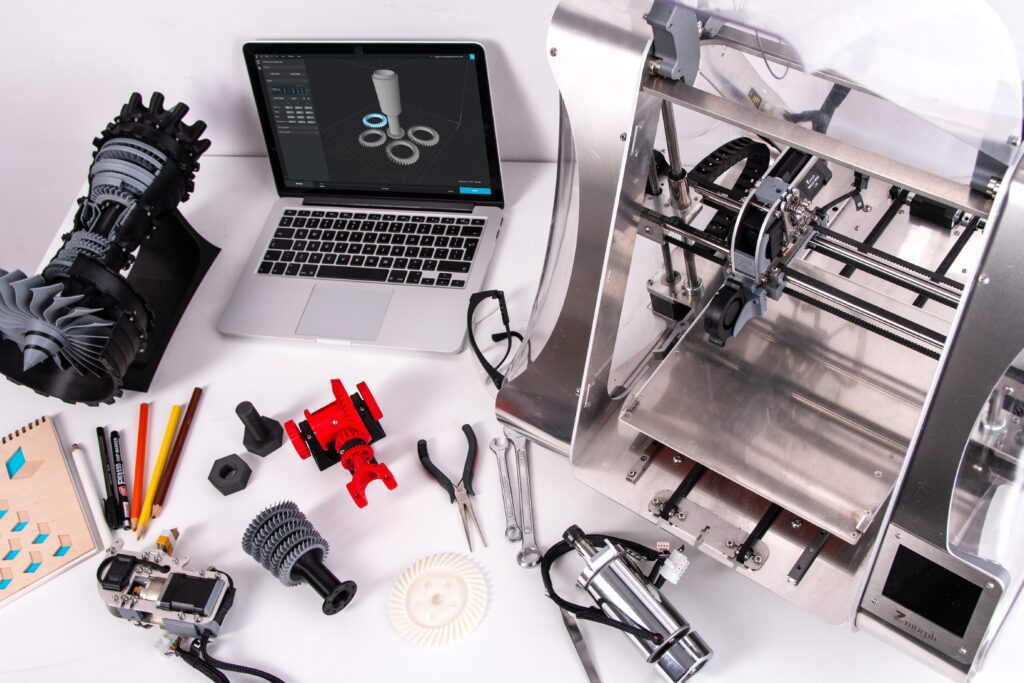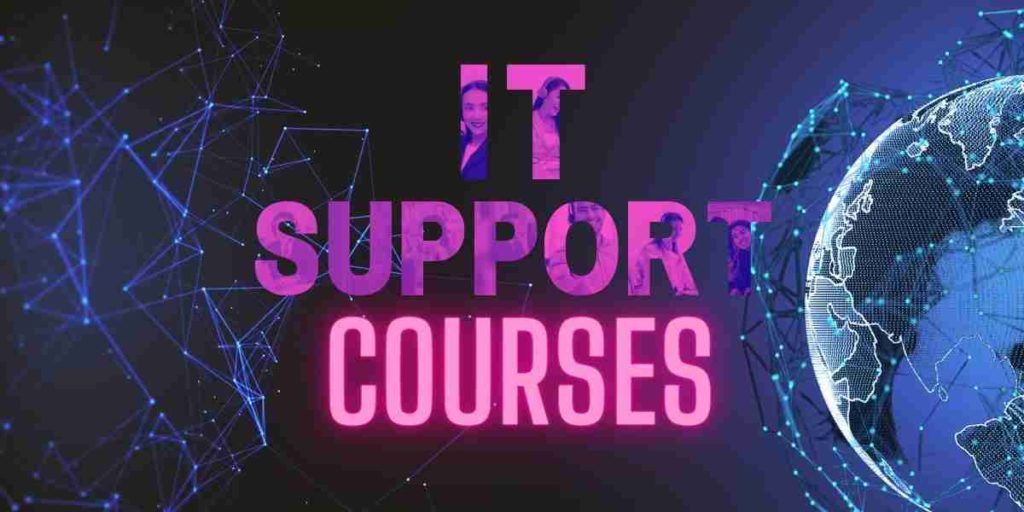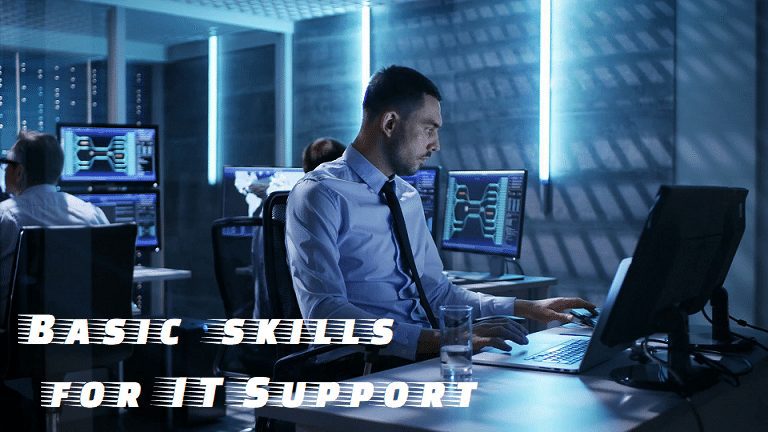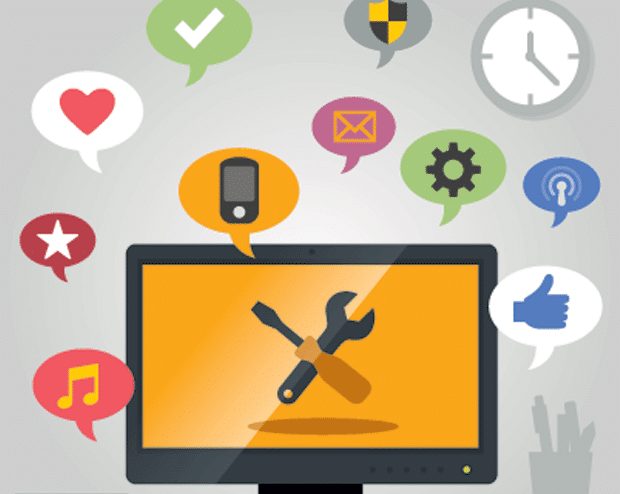IT Support Jobs in Singapore – Ultimate Guide 2024
What is IT Support for?
All organizations for profit or nonprofits, school systems, and government organizations all rely on technology. When computers fail, systems crash, phones die, we need IT Support experts to fix them. IT support is all about troubleshooting and problem solving and creating a great customer experience along the way. This includes configuring and setting up computers for users within an organization, managing computer systems, and troubleshooting whenever a technical issue arises. A job in IT can mean in-person or remote help desk work in a range of organizations across many different industries.


What are the responsibilities of an IT support person?
There are a variety of IT support jobs available, each with its own set of responsibilities and requirements.
Help Desk Support Professionals
are responsible for providing clients and customers with technical assistance. They are responsible for troubleshooting and resolving technical issues and may work in a call center environment or remotely.
Desktop Support Professionals
are responsible for maintaining and troubleshooting software and computer systems. They may work in an organization’s office or remotely.
Enterprise Support Professionals
specializing in building, maintaining and troubleshooting the company’s enterprise level network systems. This may involve designing, configuring, installing and maintaining Server, NAS, Switch, Wireless access point and system software in addition to monitoring network performance.
System Administrators
are responsible for the administration, maintenance and management of an organization’s computer systems. This may involve installing, configuring, and maintaining software and hardware, as well as monitoring system performance and resolving issues.
What qualifications do I need to be a IT Support?
IT Support is an in-demand and challenging career that requires a blend of technical, communication, and problem-solving skills. With the ever-growing reliance on technology in our daily lives, the demand for IT Support professionals is on the rise. In this article, we’ll discuss the qualifications and skills you need to become an IT Support professional.
Essential Skills for IT Support
IT Support professionals must possess certain technical and non-technical skills to excel in their careers. Some of the essential skills required include:
-
-
- Strong troubleshooting and problem-solving skills
- Excellent communication skills
- Knowledge of operating systems and hardware
- Familiarity with various software and applications
- Ability to work under pressure and prioritize tasks
-
Importance of Technical Certifications
Technical certifications validate an individual’s expertise in a particular field and provide a competitive edge in the job market. Some of the popular certifications for IT Support professionals include CompTIA A+, Microsoft Certified Solutions Associate (MCSA), and Certified Information Systems Security Professional (CISSP).
Formal Education and Training
While a formal education is not a requirement for IT Support, obtaining a degree in computer science, information technology, or a related field can provide a solid foundation for the role. In addition to formal education, IT Support professionals can also benefit from attending training programs or workshops to stay up-to-date with the latest technology and developments in the field.
Relevant Work Experience
Gaining relevant work experience is crucial for IT Support professionals. Many IT Support positions require hands-on experience with hardware, software, and network systems. It’s also important to have a portfolio of projects to demonstrate your technical skills and expertise.
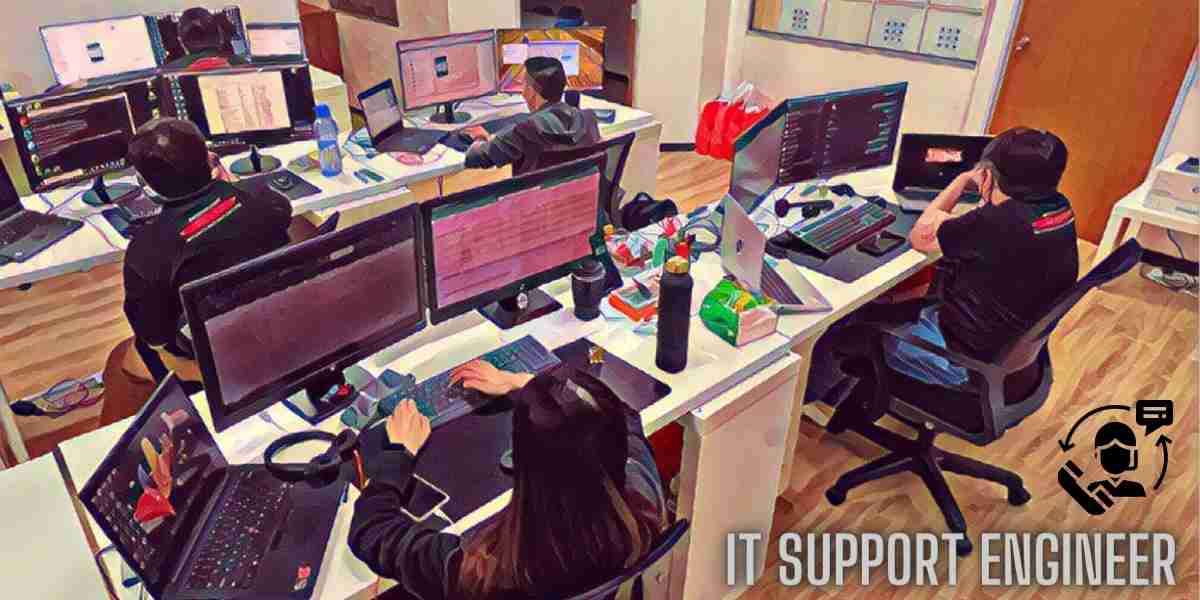
IT Support Engineer
The Engineer will be responsible for technical jobs or projects with a strong focus on providing IT technical support and solutions. This position will handle the company’s IT systems and application infrastructure projects, provide Level 1, Level 2 and Level 3 troubleshooting, and will be required to travel within Singapore from time to time for off-site support.
IT support jobs with no experience is possible if there is a growth mindset and hungry attitude with the proper training, mentoring and coaching program in place.
IT Desktop support jobs in Singapore are quite common. Their primary job scope is to resolve the daily end users’ problems like email, printing, performance and many others.

What is 1st Level IT Support Technician?
It is the frontend, 1st line IT support, usually provided by IT Support Technician with the least experience.
Some of the tasks performed by the IT Support Technician Level 1
- Collect customer requests and information
- Attend to customer phone calls
- Respond to user emails and social media messages
- Conduct basic troubleshooting using questionnaires to find out the level of support needed
- Create service desk tickets
- Provide product information as required by end users
- Solve common problems such as username and passwords issues, menu navigation, verification of hardware and software, installation issues, and setup.
Level 1 support teams solve user problems by following standard operating procedures (SOP) or referencing to Frequently Asked Questions (FAQ). Level 1 will try to resolve the issue within 60 minutes, after that Level 1 support team will escalate the support ticket to Level 2 support.
What is 2nd Level IT Support Engineer?
The team take queries from 1st Level IT support technician. This level of help mostly deals with in-depth troubleshooting and backend analysis. First, a 2nd level IT Support Engineers reviews the work order from a 1st Level IT Support Technician to determine how much support was provided, what the client issue is, and how long the client has worked with Level 1.
The IT Support Level 2 Engineer then communicates with the user for an in-depth analysis of the problem before providing a solution. If a solution is not available, the query moves up to Level 3 Support Expert. Usually, 2nd Level IT support personnel have a deep understanding of the company products and extensive experience in troubleshooting. These engineers also have more experience working for the company, in-depth training, and access to all company information.
What is 3rd Level IT Support Expert?
The Engineers are very experienced with high product competency. They have gone thru product certification and have access to the highest level of company and product information. They can provide solutions like performance tuning and change management for a wide variety of technical problems. They will also build knowledge base and FAQs for IT Support Level 1 Technician.
They also provide regular scheduled in-depth training to 1st Level IT Support Technicians and 2nd Level IT Support Engineers.
IT Support Level 1 Technician, IT Support Level 2 Engineer and IT Support Level 3 Expert
IT Support Level 1 Technician: This is the entry-level position for an IT support professional. They provide basic technical support to users and troubleshoot common issues such as password resets, software installations, and connectivity problems. They may also assist with hardware repairs and maintenance.IT Support Level 2 Engineer: This is a more advanced position for an IT support professional. They handle more complex issues that cannot be resolved by Level 1 technicians. They may also provide training and guidance to Level 1 technicians. They may also be responsible for maintaining and troubleshooting network infrastructure and servers.
IT Support Level 3 Expert: This is the highest level of IT support. They have the highest level of technical expertise and are responsible for handling the most complex issues. They may also be responsible for managing and mentoring lower level technicians. They may also be involved in the design, implementation, and maintenance of IT systems, as well as being a point of escalation for critical incidents.
| Job Title | Level 1 Technician | Level 2 Engineer | Level 3 Expert |
|---|---|---|---|
| Job Description | Entry-level IT support role responsible for basic troubleshooting and customer service | Intermediate IT support role with increased responsibilities for troubleshooting and problem-solving. | Senior IT support role with advanced technical knowledge and responsibilities for managing and mentoring other IT support staff. |
| Qualification | High school diploma or equivalent. | Associates degree in computer science or related field. | Bachelor's degree in computer science or related field. |
| Certification | A+ certification or similar entry-level IT certification. | Network+ or similar intermediate IT certification. | MCITP, CCNA, or similar advanced IT certification. |
| Role | Front-line technical support for customers and users. | Intermediate technical support and escalation point for Level 1 support staff. | Lead technical support and responsible for the overall management of the IT support team. |
| Responsibilities | Responding to customer inquiries and troubleshooting basic technical issues. | Troubleshooting more complex technical issues and providing guidance to Level 1 support staff. | Managing and mentoring IT support staff, implementing IT policies and procedures, and managing vendor relationships. |
| Key Performance Indicators (KPIs) | Number of customer complaints, average resolution time, customer satisfaction rate. | Number of escalated tickets, average resolution time, customer satisfaction rate. | Team performance, budget adherence, customer satisfaction rate. |
| Years of Experience | 0-1 years | 1-3 years | 3+ years |
| Job Personality Fit | Strong customer service skills, ability to work well under pressure, willingness to learn. | Strong problem-solving skills, ability to work well under pressure, ability to lead and mentor others. | Strong leadership and management skills, ability to work well under pressure, ability to strategize and plan. |
| Skills Requirements | Basic computer troubleshooting skills, strong customer service skills, ability to learn quickly. | Intermediate computer troubleshooting skills, strong problem-solving skills, ability to lead and mentor others. | Advanced computer troubleshooting skills, strong leadership and management skills, ability to strategize and plan. |
| Level of Technical Competency | Basic | Intermediate | Advanced |
| Daily Tasks | Answering customer calls and emails, resetting passwords, diagnosing and resolving basic technical issues. | Escalating more complex technical issues to Level 2 or Level 3 support staff, maintaining documentation of customer interactions. | Managing the day-to-day operations of the IT support team, reviewing and responding to support tickets, reviewing and updating IT policies and procedures. |
| Weekly Tasks | Assisting Level 2 staff in resolving technical issues, providing training to Level 1 staff on new technologies or processes. | Conducting performance evaluations for Level 1 staff, participating in team meetings and providing status updates. | Coordinating with other departments to ensure IT support needs are met, creating and delivering training programs for IT support staff. |
| Monthly Tasks | Reviewing and reporting on support ticket metrics, participating in team meetings and providing status updates. | Participating in IT budget planning and forecasting, identifying areas for process improvement and implementing changes. | Managing vendor relationships, reviewing and analyzing IT support metrics, reporting on IT support performance to management. |
| Job Title | Level 1 Technician | Level 2 Engineer | Level 3 Expert |
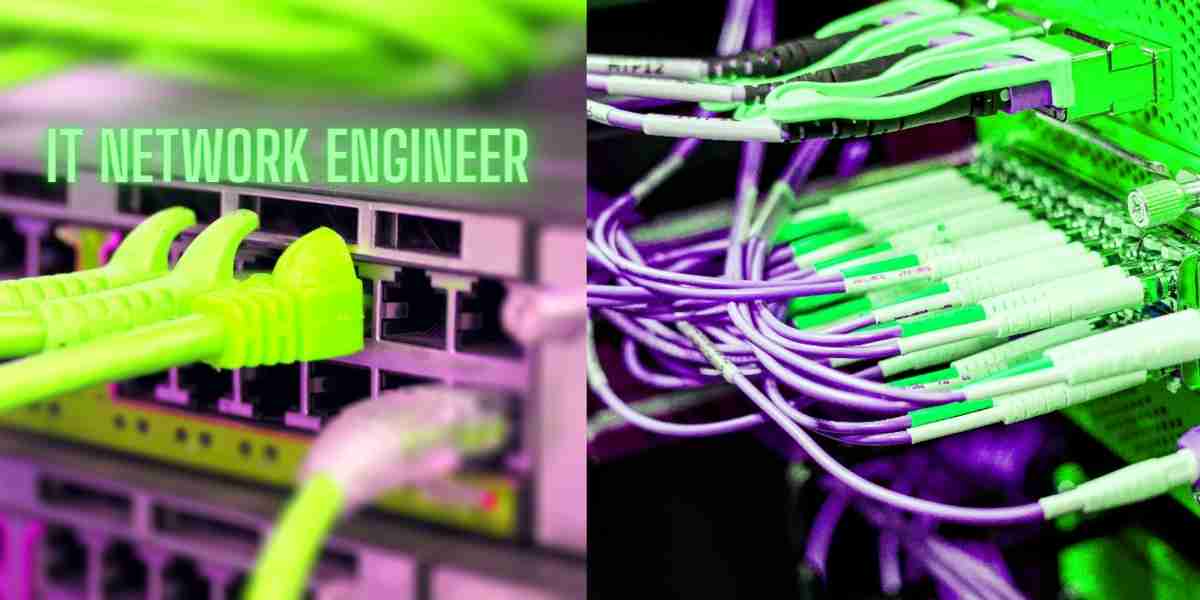
IT Network Engineer
The Engineer will be responsible for designing, implementing, monitoring and managing the local and wide area networks of an organisation to ensure high service availability for users.
This role can include designing system configurations, documenting and managing the installation of a new network, and maintaining and upgrading existing systems as necessary. Network security is also a growing concern that this job needs to address.
IT Support Manager
IT Support Manager will support, manage and train a team of IT Support Engineers. IT Support Engineers will escalate technical issues to them when need arises. IT Support Manager will identify competency gaps and potential leadership among enginers. They will also select engineer to be specialised in physical network infrastructure, virtual cloud infrastructure and cybersecurity domain.
IT Cloud Engineer
The Engineer is responsible for deploying and debugging cloud stacks, educating teams on new cloud initiatives, and ensuring the security of the cloud infrastructure. This job will have to work with the sales and engineering team to develop, implement, optimize, and maintain cloud-based solutions.
IT Project Manager
The Manager will manage resources like IT Engineers and products with the clear objective to complete a IT project on time and on budget. They will collaborate closely with IT Sytem Consultant and customers.
IT Security Engineer
The Engineer is responsible for deploying and debugging security appliance like firewall and software, educating teams on security awareness and risks, and ensuring the security of the infrastructure. This job will also covers security hardening and going through security checklist.
IT Security Manager
The Manager is responsible to design, develop and propose IT Security Solutions to customers. The job also covers to project manage the entire deployment work by the IT Security Engineers
IT System Consultant
The Consultant is responsible to design, develop and propose IT Solutions to customers. The job also covers to project manage the entire deployment work by the IT Engineers
IT Operational Director
IT Operational Director will be responsible to drive higher sales revenue, develop the business and inspire the team to achieve the corporate vision and mission by communicating the corporate values.
IT Security Auditor
IT Security Auditor is a CISSP and CREST Certified security professional. The role is to perform Vulnerability Assessment and Penetration Testing.
IT Security Director
IT Security Director will be responsible to ensure the highest security and protection for organization, so that they can have a peace of mind to focus on their core business.

IT Support Job Description
- Install and configure computer hardware operating systems and applications
- Monitor and maintain computer systems and networks
- Communicate with staff or clients through a series of actions, either face-to-face or over the phone, to help set up systems or resolve issues
- To troubleshoot system and network problems, diagnosing and solving hardware or software faults
- To replace parts for notebook, PC and Server
- To provide end user support
- Create procedural documentation
- To log in service ticket (in Zendesk)
- Create incident / security / IT Audit reports
- Followup diagrams (in Visio) and written instructions to repair a fault or set up a system
- Support the roll-out of new applications
- Set up new users’ accounts and profiles and deal with password issues
- Work continuously on a task until completion (or referral to third parties, if appropriate)
- Prioritise and manage multiple open helpdesk service ticket at one time
- Rapidly establish a good working relationship with customers and other professionals, such as software developers
- Test and evaluate new technology/products/services
- Develop security protection policies for firewall
- Configure VLAN for Switch
- Configure VPN for Firewall
- To perform security hardening for products/services
- To perform monthly security or audit checks on computer equipment.
- To setup/configure/troubleshoot Notebooks, PC and Servers
- To use ChatGPT to solve problems and write IT Report.
Product Competencies
To setup/configure/troubleshoot
- OS & Applications
- Firewall
- NAS
- Endpoint Security
- Kaspersky Endpoint Security
- Power
- APC Smart UPS
- Communications
- Networking
- Cloud
- Microsoft Azure Cloud VM/Network/Backup
- Microsoft 365
Qualification
- Preferably a Diploma or Degree in Computer Science or Information Technology or Computer Engineering or Computer Technology

IT Support Certification
The Engineer with IT Support certifications will be able to learn technology in a structured and organized way. However, with the opportunity to apply their newly acquired knowledge, they are able to be true master in that domain. As there are too many knowledge to learn, engineers’ mindset of continous learning is of paramount importance.
In short, by learning and applying more, one can be earning more.
Below are some of the most valuable IT Support Certifications.
- Google IT Certification
- Google IT Support Professional Certificate
- Gain skills required to succeed in an entry-level IT job
- Learn to perform day-to-day IT support tasks including computer assembly, wireless networking, installing programs, and customer service
- Learn how to provide end-to-end customer support, ranging from identifying problems to troubleshooting and debugging
- Learn to use systems including Linux, Domain Name Systems, Command-Line Interface, and Binary Code
- Google IT Automation with Python Professional Certificate
-
Automate tasks by writing Python scripts
-
Use Git and GitHub for version control
-
Manage IT resources at scale, both for physical machines and virtual machines in the cloud
-
Analyze real-world IT problems and implement the appropriate strategies to solve those problems
-
- Google IT Support Professional Certificate
- Network
- Cisco Certified Technician (CCT)
- Cisco Certified Network Associate (CCNA)
- Cisco Certified Network Professional (CCNP)
- Cisco Certified Internetwork Expert (CCIE)
- Microsoft Certified : Azure Network Engineer Associate
- Microsoft Certified : Windows Server Hybrid Administrator Associate
- CompTIA IT Fundamentals
- CompTIA Server+
- CompTIA Linux+
- CompTIA A+
- CompTIA Network+
- Information technology infrastructure library (ITIL 4)
- Security
- CompTIA Security+
- CompTIA CySA+
- CompTIA CASP+
- CompTIA PenTest+
- System Security Certified Practitioner (SSCP)
- Certified Cloud Security Professional (CSSP)
- Certified Information System Auditor (CISA)
- Certified Information Security System Professional (CISSP)
- Certified Secure Software Lifestyle Professional (CSSLP)
- Certified Ethical Hacker (CEH)
- CREST Professional Certification
- Fortinet Certification Network Security Expert (NSE)
- Microsoft Certified : Cybersecurity Architect Expert
- Microsoft Certified : Azure Security Engineer Associate
- Microsoft Certified : Identity and Access Administrator Associate
- Microsoft Certified : Information Protection Administrator Associate
- Microsoft Certified : Security Operation Analyst Associate
- Data
- CompTIA Data+
- Certified Data Privacy Solutions Engineer (CDPSE)
- Certified Data Professional (CDP)
- Cloud
- Project Management
-
- CompTIA Project+
- Project Management Professional (PMP)
- Certified Associate in Project Management (CAPM)
- PMI Agile Certified Practitioner (PMI-ACP)
- Certified Scrum Master
-
 |
 |
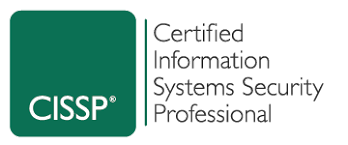 |
 |
IT Career Path
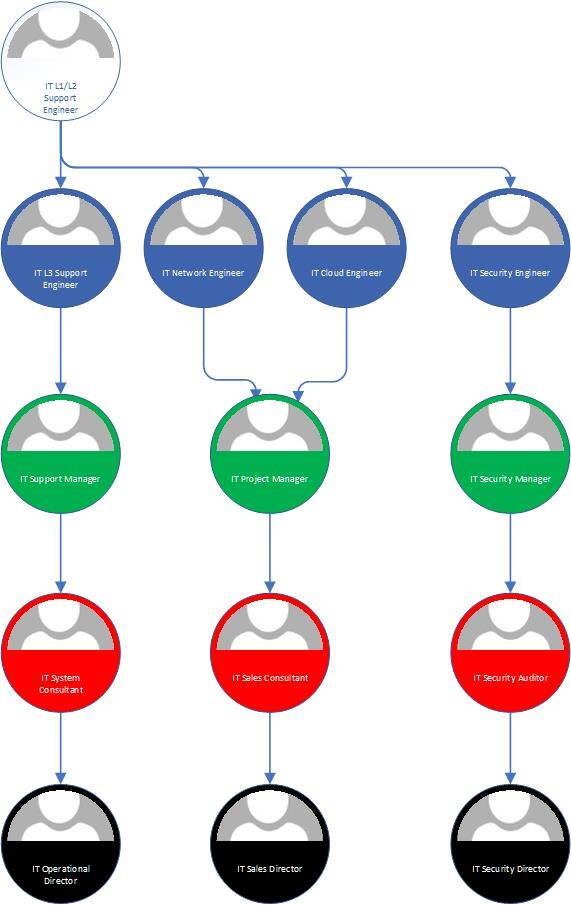
From 0-2 years, he or she will be starting as a
- IT L1/L2 Support Engineer – provide helpdesk desktop support to end users via telephone, email or remote support
After 2-4 years, he or she will be moving forward as a
- IT L3 Support Engineer – provide support to escalated issues from L1 / L2 Engineers
- IT Network Engineer – deploy and troubleshoot IT hardware and software on-premises
- IT Cloud Engineer – plan, design, deploy and manage cloud infrastructure solutions for Amazon AWS, Microsoft Azure, Google Cloud
- IT Security Engineer – deploy security solutions for hybrid infrastructure, both on-premises and cloud
After 4-6 years, he or she will be climbing upwards as a
- IT Support Manager – provide support and training to engineers for L1 / L2 / L3 Engineers
- IT Project Manager – manage IT project and coordinate communication with engineer and customers
- IT Security Manager – manage IT Security services. To protect against internal threat and to secure against external threat.
After 6-10 years, he or she will be advancing as a
- IT System Consultant – provide support consultancy to customers. work closely with IT Support Manager
- IT Sales Consultant – provide sales consultancy to customers. work closely with IT Project Manager. The role also involve in building deep trusting relationship with customer.
- IT Security Auditor – provide auditing services (like vulnerability assessment and penetration testing VAPT) for IT infrastructure. Support IT Security Manager
Beyond 10 years, he or she can expecting as a
- IT Operational Director – provide corporate alignment, business development
- IT Sales Director – provide sales consultancy to customers. work closely with IT Sales Consultant and IT Project Manager. The role also involve in building deep trusting relationship with customer.
- IT Security Director – provide the highest security and protection to the organisation
Benefits
- Bonus
- End Year 13th Month Bonus
- Unused Medical Claims to Cash Bonus
- Corporate Profit Sharing Bonus
- Transport/Mobile Allowances
- Convenient
- Centrally located in Singapore
- Near (about 250m) to Marymount MRT
- Discounts for IT Products
- Fun Activities
- Regular Social Gathering
- Weekend Getaway
- Use of Gym and Swimming Pool in Office Building
- Growth
- IT Competency Training
- Sponsored Certifications
- Career/Life Coaching by ICF Coach
- Job-Career-Business (JCB) Path





Job Types
Full-time, Permanent
IT Support Jobs Salary
- IT Support Level 1 Technician – $2000-$2500
- IT Support Level 2 Engineer – $2500-$3000
- IT Support Level 3 Expert – $3000-$4000
- IT Network Engineer – $3000-$4500
- IT Cloud Engineer – $3000-$4500
- IT Security Engineer – $4000-$5500
How to Apply
Interested applicants, kindly send your resume to [email protected].
Common FAQs
What IT careers are in demand in Singapore?
There are a number of IT jobs that are in demand in Singapore. Some of the most in-demand IT jobs in Singapore include:
- Data Scientists
- Software Engineers
- DevOps Engineers
- Cloud Engineers
- Cybersecurity Professionals
- Artificial Intelligence (AI) and Machine Learning (ML) Specialists
- Full-Stack Developers
- Mobile Developers
- Technical Project Managers
Demand for IT professionals with expertise in areas such as cloud computing, cybersecurity, and artificial intelligence is particularly high in Singapore. Companies in various industries are looking for IT professionals with these skills to help them digitally transform and stay competitive in a rapidly evolving business environment.
How do you get an IT support jobs in Singapore?
There are several ways to get an IT support role. Here are a few suggestions:
- Get a degree in computer science or a related field. Many IT support roles require at least a bachelor’s degree in a field such as computer science, information technology, or electrical engineering.
- Gain relevant experience. Consider internships or entry-level positions that will give you hands-on experience in IT support.
- Learn relevant technical skills. IT support roles typically require knowledge of computer hardware, software, and networking. You can gain these skills through coursework, online resources, or by earning industry certifications such as A+ or Network+.
- Build your communication skills. IT support roles often involve interacting with customers or clients, so strong communication skills are important. Consider taking a course or workshop on communication or customer service to improve your skills.
- Network and apply for IT support roles. Connect with professionals in the field and let them know you are interested in an IT support role. Look for job openings and apply to positions that match your skills and experience.
- Consider a specialized IT support role. There are many different types of IT support roles, such as technical support, customer support, and field support. Consider specializing in a particular area to increase your chances of getting hired.
What should I search on Glassdoor to find IT Support jobs in Singapore?
To find Helpdesk Support jobs in Singapore on Glassdoor, you can try searching for keywords such as “Helpdesk Support,” “Technical Support,” “IT Support,” “Desktop Support,” or “Customer Support.” You can also try including the location “Singapore” in your search to narrow the results to positions available in Singapore.
Here are a few example searches you could try:
- “Helpdesk Support Singapore”
- “Technical Support Singapore”
- “IT Support Singapore”
- “Desktop Support Singapore”
- “Customer Support Singapore”
You can also try using filters on the Glassdoor search page to further narrow your results. For example, you can filter by company, job title, location, or job type. This can help you find positions that are a good match for your skills and experience.
What are the top cities near Singapore with open Helpdesk Support jobs?
Some cities that may have a high demand for IT support professionals and may be worth considering include:
- Kuala Lumpur, Malaysia
- Jakarta, Indonesia
- Bangkok, Thailand
- Manila, Philippines
- Ho Chi Minh City, Vietnam
These cities are located in the Southeast Asia region and have growing economies and vibrant IT sectors. You may want to consider looking for IT support jobs in these cities if you are interested in working in the region.
What qualifications do you need to work in IT Support Jobs in Singapore?
The qualifications required for IT support roles can vary depending on the specific position and the employer. However, there are some common qualifications that are often sought by employers hiring for IT support roles:
- A degree in a relevant field: Many IT support roles require at least a bachelor’s degree in a field such as computer science, information technology, or electrical engineering.
- Relevant technical skills: IT support roles typically require knowledge of computer hardware, software, and networking. You can gain these skills through coursework, online resources, or by earning industry certifications such as A+ or Network+.
- Strong communication skills: IT support roles often involve interacting with customers or clients, so strong communication skills are important.
- Problem-solving skills: IT support professionals should be able to troubleshoot and resolve technical issues efficiently.
- Customer service skills: IT support professionals should be able to provide excellent customer service and be able to effectively communicate technical information to non-technical users.
In addition to these general qualifications, specific IT support roles may require additional skills or certifications. For example, a role in cybersecurity may require a certification such as the Certified Information Systems Security Professional (CISSP).
What is an IT support career?
An IT support career involves providing technical assistance to individuals and organizations using computer hardware and software. IT support professionals help users troubleshoot and resolve technical issues, install and configure hardware and software, and provide training and support for the use of computer systems.
IT support careers can take a variety of forms, including roles such as technical support, customer support, and field support. IT support professionals may work in a variety of settings, including businesses, government agencies, schools, hospitals, and other organizations.
IT support careers can be rewarding for individuals who enjoy helping others and solving technical problems. IT support professionals often work closely with users to understand their needs and provide solutions to technical issues. They may also have the opportunity to learn about new technologies and help organizations stay up-to-date with the latest software and hardware.
How does IT support engineer use AI to do their tasks?
- Automated Problem Solving: AI-driven tools like chatbots and virtual assistants can handle routine inquiries and issues, providing instant responses to common problems. This not only speeds up resolution times but also allows human engineers to focus on more complex tasks.
- Predictive Maintenance: Through machine learning algorithms, AI can predict system failures or issues before they occur, enabling proactive maintenance. This reduces downtime and prevents the escalation of problems.
- Enhanced Security: AI systems can monitor networks in real-time, identifying and neutralizing threats more efficiently than traditional methods. They can detect patterns indicative of cyber attacks, offering a robust defense mechanism.
- Personalized Support: AI can analyze user behavior and preferences to tailor support solutions. This personalized approach improves user satisfaction and effectiveness in resolving issues.
- Knowledge Management: AI can organize and manage vast amounts of data, making it easier for IT support engineers to access and utilize information. This includes automated documentation of resolved issues, creating a valuable knowledge base for future reference.



